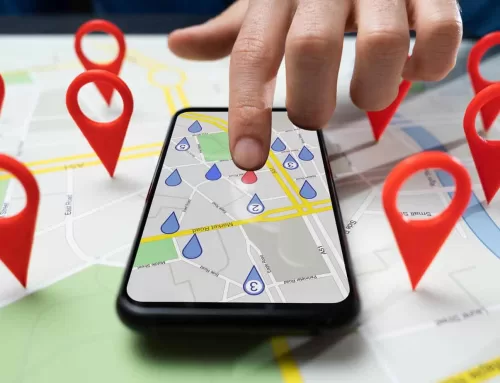Leveraging Nuanced Marketing to Empower Small Businesses in Regional Australia
The recent success of the 2023 Women’s World Cup in Australia and New Zealand serves as a compelling demonstration of how lucrative nuanced marketing can be, if done right. It also offers regional communities a powerful blueprint for leveraging nuanced marketing to empower small business in order to invigorate their growth.
A Blueprint For Regional Businesses
By embracing multiculturalism and engaging with diverse communities, the strategy taps into local interests and connections. Just as the approach aims to involve various ethnic and migrant groups through tailored efforts, small businesses in regional areas can similarly connect with their communities by recognising shared values and employing localised marketing strategies. This approach not only fosters a sense of belonging but also highlights the significance of personalisation and community engagement in driving enthusiasm and support.
Small Businesses Shape Communities
With the vast and diverse landscapes of regional Australia, small businesses play a pivotal role in shaping local economies and fostering community connections. These enterprises face unique challenges compared to their urban counterparts, such as limited resources, smaller customer bases, and geographical isolation. In this context, nuanced marketing emerges as a powerful tool that can empower small businesses to not only survive but thrive in their local micro-communities.
Understanding Nuanced Marketing:
Nuanced marketing involves tailoring marketing strategies and messages to specific local contexts and individual preferences. Instead of adopting a one-size-fits-all approach, nuanced marketing takes into consideration the distinct characteristics of a regional community. It then uses this understanding to create relevant, engaging, and personalised marketing campaigns.
Practical Examples of Nuanced Marketing for Regional Small Businesses:
- Local Partnerships and Collaborations: Collaborating with other local businesses, organisations, or events. This can help amplify your small business’s presence. For instance, a boutique clothing store could partner with a nearby artisanal bakery to offer joint promotions. This not only introduces customers to complementary businesses but also reinforces the sense of community.
- Community Workshops: Events that help other small business, local schools and community members. Not only do they offer valuable information, they also establish the business as knowledgeable and approachable. An accounting firm could organise free workshops on tax planning for business, financial literacy lessons for school children, and budgeting for families. Sharing their expertise can establish them as a thought leader within the community.
- Client Appreciation Events: For business to business (B2B) services, hosting an annual client appreciation event that celebrates the successes of local businesses and individuals. This event reinforces relationships and showcases the firm’s dedication to the community.
- Showcasing Local Authenticity: Highlighting the unique qualities of the local area can resonate strongly with the community. A cafe could use locally-sourced ingredients and artwork from regional artists. This creates an atmosphere that reflects the local culture. Sharing stories about the origins of products can also establish an emotional connection with customers.
- Celebrate Local Heritage: A family-owned orchard could emphasise its history and deep-rooted connections to the region to captivate customers with the tale of generations cultivating the land. This narrative adds a personal touch and cultivates a sense of pride among their customers.
- Community Engagement Events: Collaborating with local schools to organise outdoor workshops or community picnics. This can introduce the business to new faces. A rural farm, for instance, might host a “Harvest Day” where families can experience farm life firsthand.
- Engage in Local Causes: Sponsoring or organising charity events aligned with community values. This showcases the business’s commitment. A bakery could hold a charity bake sale, donating proceeds to a local shelter.
- Social Media Engagement: Social media platforms can be powerful tools to connect with the local audience. A small winery might use platforms like Instagram to share stunning vistas of their vineyards, behind-the-scenes glimpses of the winemaking process, and stories about generations of family ownership. Engaging content can foster a loyal online community.
- Tailored Loyalty Programs: Implementing loyalty programs that reward repeat customers. This can be particularly effective in smaller communities. A bookstore could offer discounts or exclusive events for regular customers, fostering a sense of belonging and appreciation.
- Localised Online Advertising: Online advertising can be precisely targeted to reach specific geographic areas. A hardware store could run Facebook ads targeting users within a certain radius, promoting special offers on tools and equipment relevant to the needs of the local population.
- Community Involvement: Participating in local events, sponsorships, or charitable activities. This can build goodwill and increase brand visibility. A fitness studio might organise a charity run or partner with a school for wellness workshops, showcasing their commitment to community well-being.
- Create Online Community Hubs: Utilising social media platforms. A craft store or plant nursery could create groups or pages where customers can share their creations or their thriving plants. With the aim of sparking a sense of camaraderie and encouraging others to explore their creativity.
- Collaborate with Neighbors: Partnering with a neighboring café to offer a joint “Farm-to-Table” dining experience. This can showcase locally sourced ingredients, attracting food enthusiasts who value sustainable practices.
- Responsive Customer Service: Personalised customer service can set small businesses apart. Responding to customer inquiries promptly and addressing their needs in a personalised manner can mean more to the local community than price, and can create a positive reputation that spreads through word of mouth.
- Localised Content Marketing: Creating blog posts, videos, or other content that address regional interests or challenges. This can position your business as an expert and resource within the community. For example, a nursery could publish articles on local soil types or plant varieties suited to the region’s climate.
- Adapting to Seasonal Trends: Regional businesses often experience unique seasonal patterns. A rural hardware store can shift its promotions to align with seasonal needs. It might highlight gardening tools in spring and heating supplies in winter, addressing local requirements in real-time.
- Feedback and Adaptation: Regularly seeking feedback from local customers and adapting your offerings based on their preferences can showcase your commitment to providing value and meeting their needs.
The remarkable success of the 2023 Women’s World Cup underscores the potential of nuanced marketing. This strategic approach, rooted in community engagement and personalised messaging, offers a valuable roadmap for regional small businesses seeking to thrive. Just as the Cup strategy embraced multiculturalism and tailored efforts, local businesses can tap into their unique communities by aligning with shared values and employing localised marketing tactics. By embracing the distinctiveness of their surroundings and tailoring their strategies accordingly, these businesses can create lasting relationships and sustainable growth that resonates far beyond their local area.
If you need help tailoring your marketing approach to suit your business, call us. We can set up a nuanced marketing plan designed specifically for your business and your local community.
For more information on the Women’s World Cup marketing strategies – https://www.smh.com.au/sport/soccer/where-did-all-these-fans-come-from-inside-the-world-cup-s-multicultural-strategy-20230806-p5duai.html






